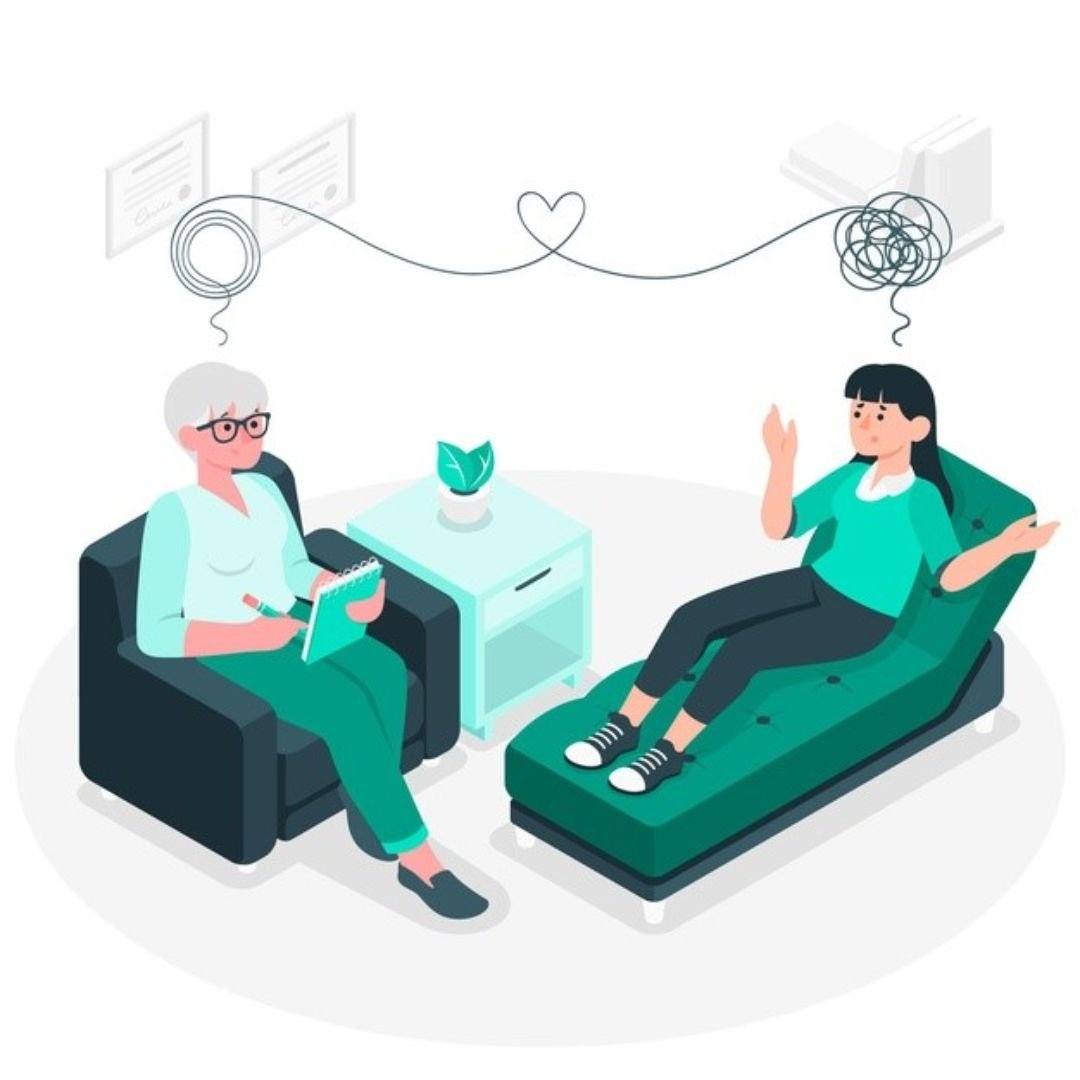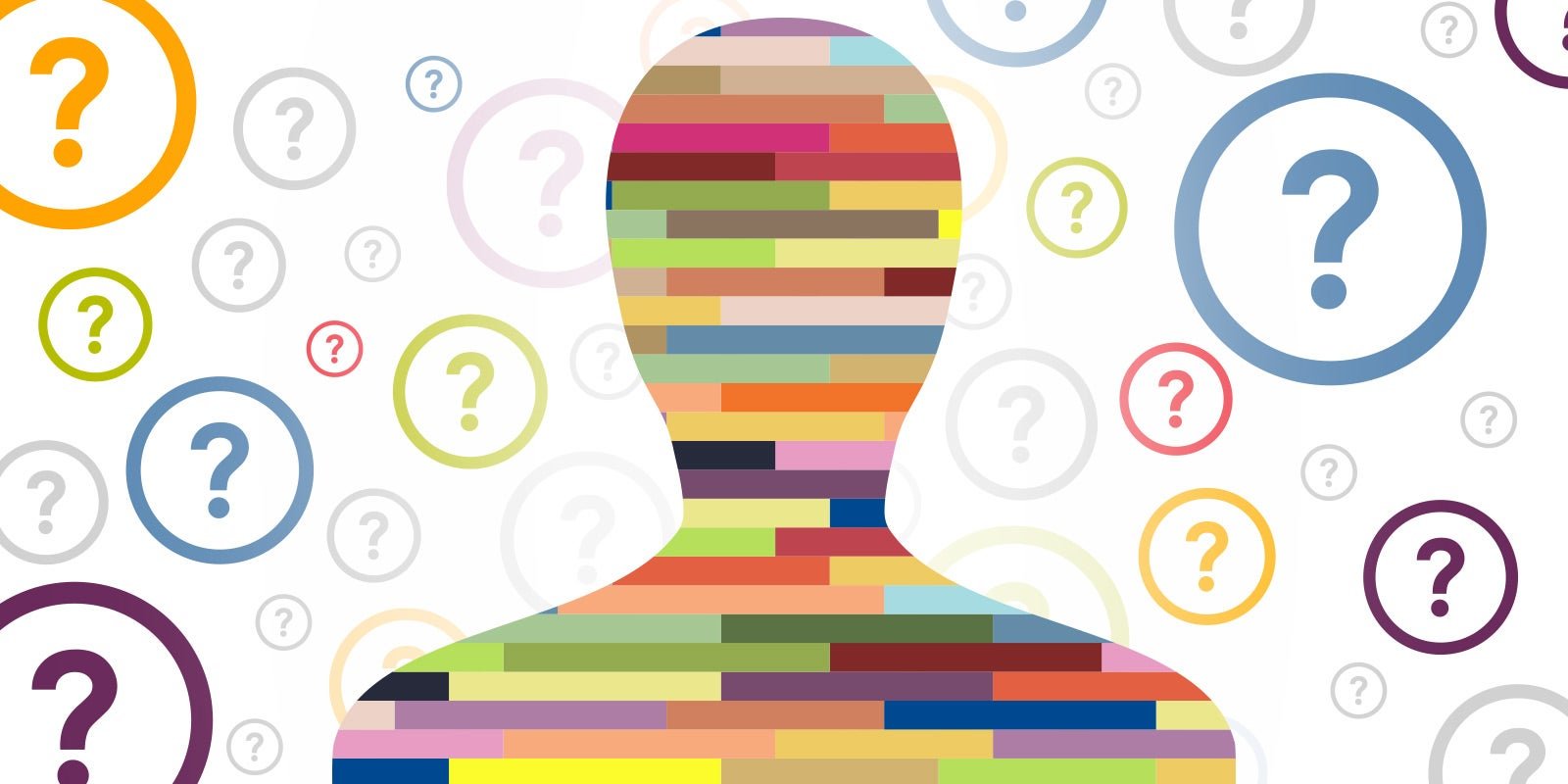
Client Centered Therapy (Carl Rogers Approach)
Client-centered therapy, also known as person-centered therapy, is a type of psychotherapy developed by Carl Rogers in the 1950s. It is based on the premise that individuals have the innate ability to heal themselves and that the therapist's role is to provide a supportive and non-judgmental environment that facilitates that healing process. In client-centered therapy, the therapist creates a safe and empathetic space for the client to explore their thoughts, feelings, and experiences. The therapist actively listens and reflects back on the client's words and emotions, without offering interpretations or advice. This allows the client to gain greater insight into their inner workings and develop greater self-awareness.
The therapist also provides unconditional positive regard, meaning they accept the client for who they are without judgment or evaluation. This helps the client to feel accepted and valued, and to develop greater self-acceptance and self-esteem. Client-centered therapy is often used to treat various mental health issues, including depression, anxiety, addiction, and relationship problems. It is particularly effective for individuals who feel stuck or confused, as it can help them to gain clarity and perspective on their lives. Overall, client-centered therapy is a compassionate and respectful approach that emphasizes the importance of the therapeutic relationship and the client's own inner resources in the healing process.
.jpg)
Single Session Therapy (SST)
Single Session Therapy (SST) is a form of psychotherapy that is designed to help clients address specific problems or concerns in a single session. This approach was developed as a response to the increasing demand for brief, cost-effective therapy that can be completed in a single session.
SST is based on the belief that some clients can achieve significant improvements in their emotional well-being and functioning in a single session, rather than requiring long-term therapy. This approach can be helpful for individuals who are seeking immediate relief from distressing symptoms, or who want to gain new insights and strategies to address a specific problem or issue.
During an SST session, the therapist focuses on building a strong therapeutic alliance with the client and helps them to identify their goals and expectations for the session. The therapist then works with the client to identify the specific problem or concern that they want to address and helps them to develop a plan of action to achieve their goals.
SST can be used to treat a variety of mental health concerns, including anxiety, depression, trauma, and relationship issues. The focus is on providing clients with practical and actionable strategies that they can use to improve their functioning and well-being.
Overall, SST is a brief and effective approach to therapy that can provide clients with immediate relief and support. It can be a valuable option for individuals who are seeking focused, goal-oriented therapy that can be completed in a single session.
.jpg)
Rational Emotive Behavioural Therapy (REBT)
Rational Emotive Behavioural Therapy (REBT) is a form of psychotherapy developed by Albert Ellis in the 1950s. It is based on the premise that our emotions and behaviors are largely determined by our thoughts, beliefs, and attitudes, and that by changing these cognitive processes, we can change our emotional responses and behavior patterns.
REBT is an active and directive form of therapy that aims to help clients identify and challenge irrational or self-defeating thoughts and beliefs, and replace them with more rational and adaptive ones. The therapist works collaboratively with the client to identify the specific thoughts and beliefs that are contributing to their emotional distress or maladaptive behavior patterns and helps them to develop more rational and constructive ways of thinking and behaving.
REBT also emphasizes the importance of accepting oneself and others unconditionally, without judgment or evaluation. This approach can help clients to develop greater self-acceptance and self-esteem, and to improve their interpersonal relationships.
REBT can be used to treat a wide range of mental health concerns, including anxiety, depression, anger, addiction, and relationship problems. It is particularly effective for individuals who struggle with negative self-talk, self-criticism, or perfectionism, as it can help them to develop a more realistic and compassionate view of themselves.
Overall, REBT is a practical and effective approach to therapy that focuses on changing the client's cognitive processes to improve their emotional well-being and functioning. It is a collaborative and goal-oriented approach that can provide clients with practical skills and strategies to help them manage their emotions and behavior patterns.

Play Therapy
Play therapy is a type of psychotherapy that uses play to help children express themselves and address their emotional and psychological challenges. It is based on the idea that play is a natural way for children to communicate and make sense of their experiences.
During play therapy, a trained therapist creates a safe and supportive environment for the child to engage in various types of play, such as drawing, painting, building, and role-playing. The therapist may also use specific toys and games to help the child work through their issues.
Through play, children can express their emotions and thoughts, work through conflicts and traumas, learn coping skills, and develop a better understanding of themselves and others. Play therapy is often used to help children who have experienced trauma, abuse, anxiety, depression, behavioral problems, and other mental health issues.
The therapist may also involve the child's parents or caregivers in the therapy process to help them better understand their child's emotions and behavior and to provide support at home. Play therapy can be used as a stand-alone treatment or as part of a comprehensive treatment plan.

Behavior therapy
Behavior therapy is a type of psychotherapy that focuses on changing patterns of behavior that are causing problems in a person's life. It is based on the idea that behaviors are learned responses that can be modified through a process of conditioning.
During behavior therapy, a trained therapist works with the client to identify problematic behaviors and develop strategies to change them. The therapist may use a variety of techniques, including positive reinforcement, negative reinforcement, punishment, and extinction, to modify behavior.
Positive reinforcement involves rewarding desired behaviors to encourage their repetition, while negative reinforcement involves removing a negative stimulus to encourage the desired behavior. Punishment involves adding a negative consequence to discourage an undesired behavior, while extinction involves ignoring the undesired behavior to discourage its repetition.
Behavior therapy can be used to treat a range of mental health issues, including anxiety, depression, phobias, obsessive-compulsive disorder (OCD), and substance abuse. It is often used in combination with other forms of therapy, such as cognitive-behavioral therapy (CBT), to provide a comprehensive treatment plan.
The therapist may also work with the client to develop coping skills and stress-management techniques to help them maintain positive changes in their behavior over the long term. Overall, behavior therapy is a highly effective form of treatment that can help individuals overcome a wide range of behavioral problems and improve their quality of life.

Dialectical behavior therapy (DBT)
Dialectical behavior therapy (DBT) is a type of cognitive-behavioral therapy that was originally developed to treat individuals with borderline personality disorder (BPD). It has since been used to treat other mental health disorders, such as depression, substance abuse, post-traumatic stress disorder (PTSD), and eating disorders.
DBT combines cognitive-behavioral techniques with mindfulness-based practices and acceptance-based strategies. The goal of DBT is to help individuals learn to regulate their emotions, improve their interpersonal relationships, and develop coping skills to manage difficult situations.
DBT involves both individual therapy sessions and group therapy sessions. In individual therapy, the therapist and client work together to identify triggers for emotional distress and develop strategies for managing those triggers. In group therapy, individuals learn skills such as mindfulness, emotion regulation, interpersonal effectiveness, and distress tolerance.
DBT also emphasizes the importance of the therapeutic relationship and encourages the client and therapist to work together as a team to achieve treatment goals. Clients are encouraged to practice the skills they learn in therapy in their daily lives, and the therapist provides ongoing support and feedback.
Overall, DBT is a highly effective form of therapy that can help individuals with a wide range of mental health issues develop the skills they need to manage their emotions, build positive relationships, and live fulfilling lives.

Trauma-Focused Therapy (TFT)
Trauma-Focused Therapy (TFT) is a type of therapy that is specifically designed to help children, adolescents, and their families who have experienced traumatic events. It is an evidence-based approach that aims to reduce the symptoms of post-traumatic stress disorder (PTSD), depression, and anxiety, among other conditions.
TFT is typically based on cognitive-behavioral therapy (CBT) principles and techniques and is delivered in a structured and supportive environment. The therapy is typically short-term, lasting between 8 and 20 sessions, and focuses on teaching children and their families coping skills and strategies for managing the effects of trauma.
TFT involves several key components, including psychoeducation, skill-building, and exposure. During the psychoeducation phase, the therapist works with the child and their family to help them understand what trauma is and how it affects the brain and body. This helps to reduce feelings of shame and blame and helps the child and family understand that their reactions to the trauma are normal.
The skill-building phase involves teaching the child and family coping skills, such as relaxation techniques, cognitive restructuring, and problem-solving skills. These skills help the child and family manage their symptoms and build resilience in the face of ongoing stress.
The exposure phase involves gradually exposing the child to trauma-related stimuli in a safe and supportive environment. This can help the child process and make sense of the trauma, reducing the emotional impact and improving their ability to cope with trauma-related stressors.
TFT is typically delivered in individual or family therapy sessions, although group therapy may also be used in some cases. The therapist works collaboratively with the child and their family to tailor the therapy to their specific needs and goals.
Overall, TFT is a highly effective form of therapy for children and adolescents who have experienced trauma. By providing education, skills, and support, TFT can help children and their families manage the effects of trauma and build resilience in the face of ongoing stress.

Career Guidance & Counseling
Career guidance and counseling tests are tools designed to help individuals identify their strengths, interests, and career goals. These tests can be administered by career counselors, psychologists, or other professionals who specialize in career counseling.
There are many different types of career guidance and counseling tests available, each with its own unique focus and purpose. Some common career guidance and counseling tests include:
-
Interest Inventories: These tests are designed to help individuals identify their interests and preferences, which can then be used to explore potential careers that align with those interests.
-
Personality Assessments: These tests are designed to help individuals understand their personality traits, which can then be used to explore careers that are a good match for their personality.
-
Aptitude Tests: These tests are designed to assess an individual's natural abilities and strengths, which can then be used to explore potential careers that make use of those abilities.
-
Values Assessments: These tests are designed to help individuals identify their core values and beliefs, which can then be used to explore careers that align with those values.
Career guidance and counseling tests can be administered in a variety of ways, including online, through paper-and-pencil assessments, or in person with a counselor or other professional. The results of these tests can then be used to guide career exploration, decision-making, and planning.
It is important to note that while career guidance and counseling tests can be helpful in identifying potential career paths, they are not definitive or prescriptive. Individuals should still take the time to explore their interests, passions, and values, and to gather information about potential careers through research, networking, and job shadowing or internships. A career counselor or other professional can help individuals navigate this process and make informed career decisions that align with their goals and values.

Personality Tests
Personality tests are tools that are designed to measure various aspects of an individual's personality, including their traits, values, interests, and behaviors. These tests are typically used in a variety of settings, including career counseling, psychological assessment, and self-awareness.
There are many different types of personality tests available, each with its own unique focus and purpose. Some common types of personality tests include
-
Myers-Briggs Type Indicator (MBTI): This test is designed to identify an individual's personality type based on four dichotomies: extraversion/introversion, sensing/intuition, thinking/feeling, and judging/perceiving.
-
Millon Clinical Multiphasic Personality Inventory (MCMI): This test is designed to measure various aspects of an individual's personality and psychological functioning, including depression, anxiety, and personality disorders.
Personality tests are typically administered in a variety of ways, including online, through paper-and-pencil assessments, or in person with a psychologist or other mental health professional. The results of these tests can then be used to provide insight into an individual's personality traits, strengths, and areas for growth.
It is important to note that while personality tests can provide valuable insight into an individual's personality, they are not definitive or prescriptive. They should be used as one tool among many for self-awareness and personal growth, and should not be used to make important life decisions or to diagnose mental health conditions.

Behavioral Assessment
Behavioral assessment is a process that involves the systematic collection and analysis of information about an individual's behavior, with the aim of understanding and modifying maladaptive behaviors. It is commonly used in clinical and educational settings to identify and address problematic behaviors in children and adults.
Behavioral assessment typically involves the following steps:
-
Defining the behavior: The first step in behavioral assessment is to define the behavior that is being targeted for change. This involves identifying specific behaviors that are problematic, as well as the circumstances in which they occur.
-
Collecting data: Once the behavior has been defined, data is collected about the behavior through various methods, such as direct observation, self-report, and interviews with the individual or those who know them well.
-
Analyzing the data: The data that has been collected is then analyzed to identify patterns and potential causes of the problematic behavior.
-
Developing a treatment plan: Based on the data analysis, a treatment plan is developed to address the problematic behavior. This may involve a range of strategies, such as positive reinforcement, behavior modification techniques, and cognitive-behavioral therapy.
-
Evaluating the effectiveness of the treatment: The final step in behavioral assessment is to evaluate the effectiveness of the treatment plan. This may involve ongoing data collection and analysis, as well as making modifications to the treatment plan as needed.
Behavioral assessment can be used to address a wide range of problematic behaviors, such as aggression, anxiety, depression, and substance abuse. It is often used in conjunction with other forms of therapy, such as cognitive-behavioral therapy or medication management. By identifying and modifying maladaptive behaviors, behavioral assessment can help individuals improve their quality of life and achieve their goals.
.jpeg)
Graphology & Grapho-therapy
Graphology is also known as ‘Handwriting Analysis.’ It is considered an important expressive projective technique to study personality. It is based on the idea that writing gives an opportunity to express an individual’s needs, motives, behavior patterns, conflict & emotions.
Grapho-therapy is a therapeutic technique that involves using a handwriting exercise to bring about positive changes related to personality. The activity of writing happens through the nervous circuit in the left hemisphere of the brain which sends sensorimotor signals to the hand, then we execute writing. Reversibly, modifying strokes through repeated graphical exercises, change in the behavior & thereby in thoughts is possible.
During the session, the client is asked to provide a writing sample with a signature. A thorough analysis of your writing sample is done, and all the aspects of your personality is discussed. Based on the analysis, therapists recommend certain letters or signature exercises for practice to bring about desired positive changes in behavior. The client is supposed to remain regular to follow Grapho-therapy to get effective results.
Grapho-therapy is effective if you wish to work on your habits, characteristics, emotional state or mood, undesired behavior, improve any skills, health, etc.
